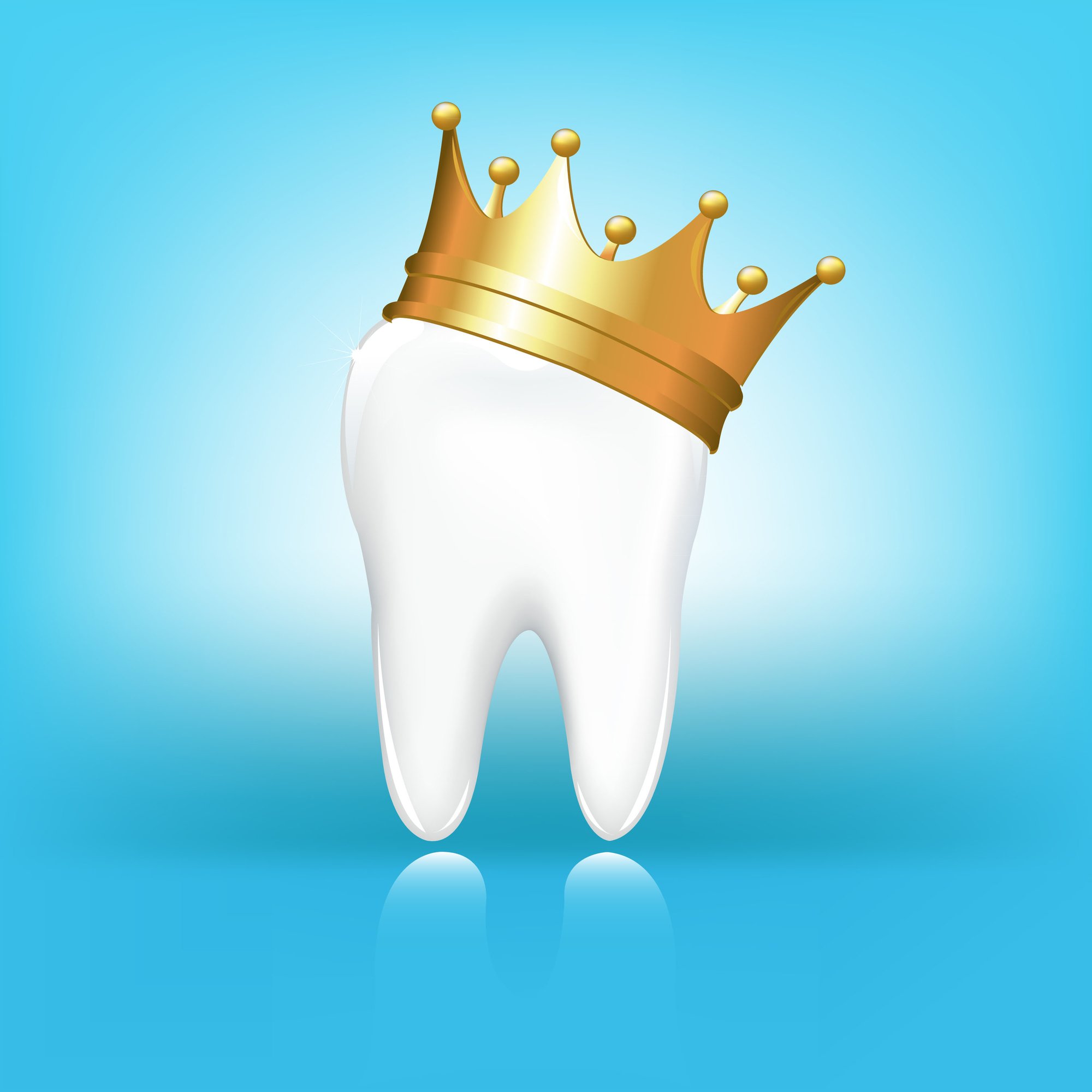
Each time a dentist places a dental crown, their goal is to restore the look and function of the damaged tooth. Dental crowns are popular restorative options because they are extremely effective, durable, and versatile. Most dentists offer several types of dental crowns, such as all-ceramic, metal, porcelain-fused-to-metal, and zirconia. Each type has its own set of advantages and disadvantages. The patient and dentist will work together to choose the material that works best for the patient’s lifestyle and smile.
Not sure if you need a crown? Here are five reasons why your dentist may suggest a dental crown:
1. Large cavity
Cavities can create large holes in a tooth when not treated early enough. In cases like these, a dentist will clean out and fill the cavity, but the surrounding tooth structure may still be weak. When that occurs, a crown is used to protect the rest of the tooth from breaking.
2. Broken cusps
The cusp of a tooth is the pointed part of the biting surface used to break up foods. These are typically broken when a person chews on things like ice or crunchy foods often. Though these types of cracks or breaks aren’t usually painful at first, they enhance a person’s risk of further breakage, tooth decay, and disease. It is important for patients to seek dental treatment for a broken cusp as soon as possible. In many cases, the dentist will recommend a dental crown.
3. Excessive wear
Bruxism (teeth grinding), acid reflux, and consuming large amounts of highly acidic foods can cause teeth to wear over time. Sometimes this process is quick and other times, teeth wear from years of neglect. Patients eventually notice that their teeth aren’t as sharp or as long as they once were.
Dentists will place a dental crown over the damaged tooth along with treating the underlying cause of the tooth wear. For example, if bruxism has caused the damage, your dentist may recommend wearing a nightguard to protect your teeth while sleeping.
4. Root canal
A patient may need root canal therapy for any of the following reasons:
- Severe decay
- Repeated dental procedures on the same tooth
- A faulty crown
- A severe chip or crack in the tooth
Regardless of the reason, once the procedure is complete, the dentist will most likely place a dental crown on top of the root-canaled tooth to reinforce the tooth’s strength and function. The natural tooth serves as a pillar for the crown, keeping it secured and supported.
5. Dental implants
When a patient wants to replace a missing tooth, most dentists recommend dental implants. This tooth-replacement option is one of the safest, most durable, and natural-looking options available.
The procedure consists of placing a titanium, screw-like rod through the gums and into the jawbone—this acts as the tooth root. Once healed, the dentist will place an abutment that secures the crown to the implant. To replace more than one missing tooth, the patient may choose an implant-supported dental bridge or denture.
Dental Crown in Woolgoolga
Not sure if you need a dental crown? Visit your local dentist for an initial consultation to learn about your restorative options.
Our gentle and experienced dentists are prepared to create a dental crown that restores function and completes your smile. To schedule your initial consultation, call (02) 6654-0650.


